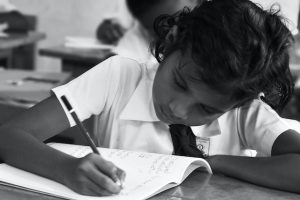
Creating an Engaging Daily Routine for Your Homeschooled Activity
Structuring a Daily Routine for Homeschool Key Stage 1
Creating a daily routine for homeschool preschool or key stage 1 is vital to establish a structured learning environment and fostering healthy habits. A consistent schedule helps children develop a sense of performance and provides a framework for their day. Here is a sample daily routine for homeschool key stage 1:
- Morning:
Start the day with a nutritious breakfast.
Engage in a short circle time to set the tone for the day. This can include singing songs, reciting rhymes, and discussing the day’s activities.
Move to a focused learning session covering early literacy, numeracy, or science. Keep the activities short and engaging, tailored to the child’s attention span.

- Mid-Morning:
Take a break for some physical activity, such as dancing, playing games, or doing simple exercises.
Provide a healthy snack to fuel their energy levels.
- Afternoon:
Engage in hands-on learning activities like arts and crafts, sensory play, or puzzles.
Incorporate free play time to encourage creativity and imagination.
Read books or engage in storytelling to promote language skills.
- Evening:
Wrap up the day with a reflection time where children can share their favourite moments or discuss what they learned.
Engage in calming activities such as listening to soft music or quiet play.
Introducing Early Literacy and Numeracy Skills in Homeschool Key Stage 1
Introducing early literacy and numeracy skills during homeschool key stage 1 lays a solid foundation for children’s academic growth. Parents can make learning enjoyable and engaging by incorporating fun and interactive activities. Here are a few practical strategies you can use to introduce these skills:
Early Literacy:
Reading Aloud: Read a variety of books to your child, including storybooks, picture books, and alphabet books. Please encourage them to ask questions and participate in the story.
Letter Recognition: Introduce letters through games, puzzles, and flashcards. Teach letter sounds and help them identify letters in their environment.
Rhyming Activities: Engage in rhyming games and songs to develop phonemic awareness. Encourage children to identify words that rhyme and create their rhymes.
Storytelling: Encourage children to create their own stories and use their imagination. Please provide them with props or puppets to enhance storytelling.
Numeracy Skills:
Counting: Use everyday objects like toys or snacks to practice counting. Start with rote counting and gradually introduce one-to-one correspondence.
Sorting and Classifying: Engage in activities where children sort objects based on attributes like size, shape, or colour. This helps develop logical thinking skills.
Number Recognition: Introduce numbers through number charts, puzzles, and flashcards. Play number recognition games to reinforce their understanding.
Patterns: Explore environmental practices, such as in nature or daily routines. Create pattern sequences using objects or colours.

Creative and Engaging Art Activities for Homeschoolers
Encouraging homeschoolers to participate in creative art activities boosts their imagination and self-expression and enhances their fine motor and cognitive abilities. Here are some fun and exciting art activities for homeschooled students:
- Collage Making: Provide children with old magazines, newspapers, coloured paper, and glue sticks. Let them create collages by cutting out pictures and glueing them onto a larger sheet of paper.
- Nature Art: Take a nature walk and collect leaves, flowers, and twigs. Use these natural materials to create artwork like leaf rubbings, flower prints, or twig sculptures.
- Playdough Fun: Make homemade playdough and let children sculpt various shapes and objects. Please encourage them to use their imagination and experiment with different colours and textures.
- Finger Painting: Set up a finger painting station using non-toxic paints and large sheets of paper. Allow children to explore colours and create unique artwork using their fingers freely.
- Process Art: Focus on the process rather than the result. Provide materials like paint, brushes, sponges, and rollers. Let children experiment with different techniques and textures.
- Recycled Art: Encourage children to repurpose recyclable materials like cardboard boxes, egg cartons, or bottle caps. Using their imagination, they can create robots, animals, or even a mini city.
Socialisation Opportunities for Homeschooled Children
Socialising is vital to a child’s overall development, even in homeschooling environments. Although homeschooled students may not interact daily with peers in a traditional school setting, parents can still create socialisation opportunities. Here are some practical ways to foster social skills in homeschooled children:
Playdates: Arrange regular playdates with other homeschooling families or friends with young children. These gatherings allow children to interact, share, and collaborate on activities.
Community Programmes: Enroll your child in community-based programmes or classes such as music, swimming, or art workshops. These activities expose children to diverse peers and encourage social interaction.
Online Communities: Join online communities or forums specifically designed for homeschooling families. Participate in virtual playdates, join group discussions, and connect with other parents and children.
Volunteering: Engage in age-appropriate volunteer activities as a family. This allows children to interact with a broader range of individuals and develop empathy and compassion.
Library Storytime: Attend library storytime sessions where children can listen to stories, sing songs, and engage in group activities. This allows children to interact with their peers in a structured setting.
Field Trips: Organise trips to museums, parks, or local attractions. These outings allow children to interact with other visitors and engage in group activities.

Assessing the Developmental Milestones in Homeschool Key Stage 1 Education
Regularly evaluating the developmental milestones in homeschool key stage 1 education is essential to monitor a child’s progress and identify areas where they may need extra support. Here are some critical developmental domains and milestones to consider:
- Cognitive Development: Observe a child’s problem-solving skills, memory, attention span, and ability to follow instructions. Look for milestones such as understanding cause and effect, recognising colours and shapes, and demonstrating curiosity and creativity.
- Language and Communication: Assess a child’s vocabulary development, speech clarity, and comprehension skills. Look for milestones such as speaking in sentences, understanding basic instructions, and expressing needs and wants effectively.
- Gross Motor Skills: Observe a child’s physical abilities, such as running, jumping, climbing, and balancing. Look for milestones such as throwing and catching a ball, riding a tricycle, or jumping with both feet.
- Fine Motor Skills: Assess a child’s hand-eye coordination, agility, and pencil grip. Look for milestones such as drawing basic shapes, using scissors, stringing beads, and holding a pencil correctly.
- Social and Emotional Development: Observe a child’s interactions with others, empathy, self-regulation, and emotional expression. Look for milestones such as sharing, taking turns, managing emotions, and showing empathy towards others.
- Self-Help Skills: Assess a child’s ability to perform self-care tasks independently, such as dressing, feeding, and using the toilet. Look for milestones such as dressing with minimal assistance, using utensils properly, and practising good hygiene habits.





